'Transcription' by Kate Atkinson (Book Review)
Humor, thriller, spy, human, romance, literary callback... Atkinson combines all the best (and worst parts) of war into an amazing novel that will have readers reevaluating their own lives as well.
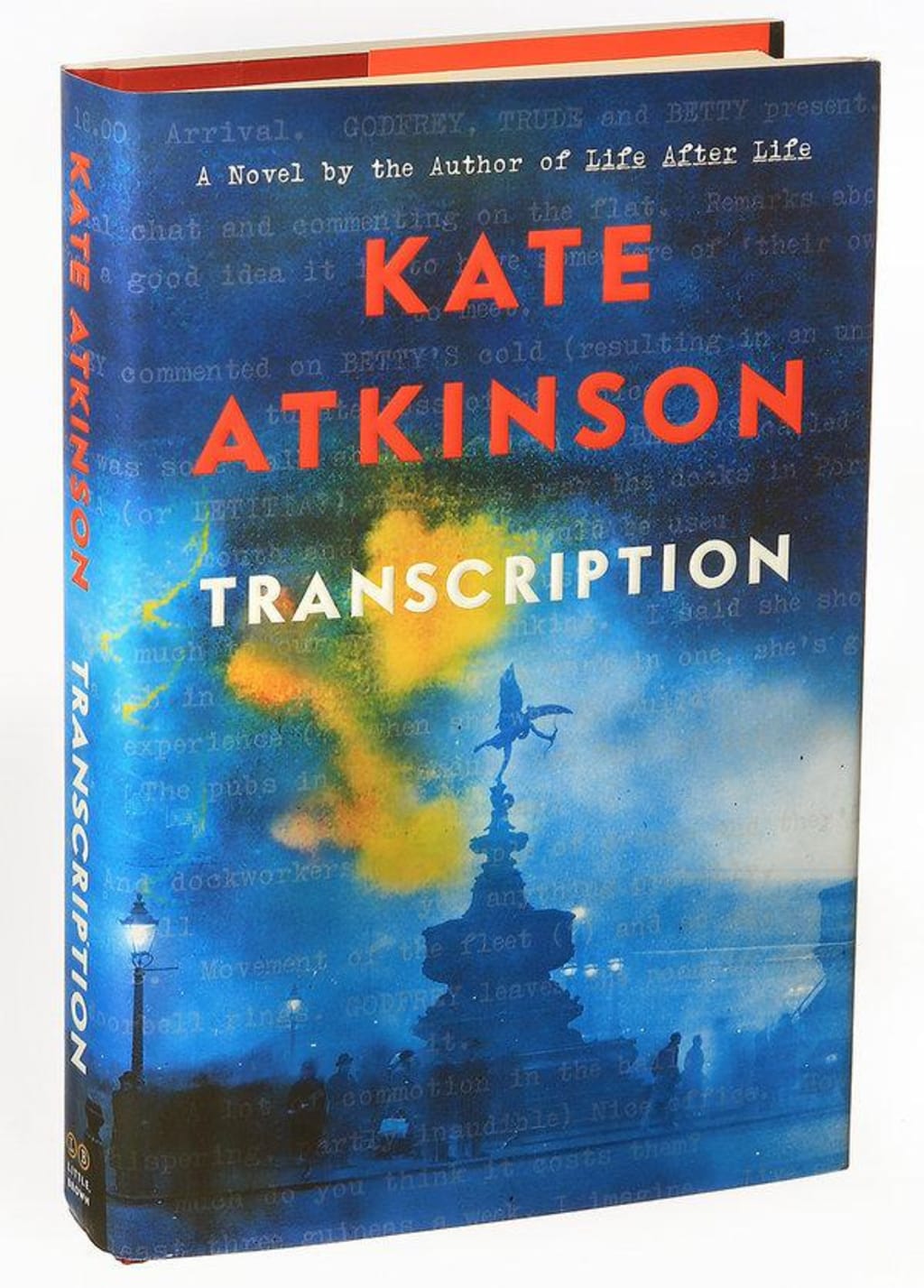
Kate Atkinson is an English writer with multiple novels and awards to her name. Her latest, released in September 2018, is Transcription, a novel following the life of Juliet Armstrong as she enters the world of spy-craft during World War II. However, Atkinson's novel isn't only about espionage, but also includes humor, romance, a look at the reality of humanity, and literary callbacks to other famous works. Atkinson takes the good and the bad of the world and creates a believable, yet also quite an unbelievable heroine/simple girl in Juliet. Readers are unsure of Juliet's true motives (or if she even has any). She's a girl, just like any of us reading the novel, who simply get caught up in the casualties of war. However, Atkinson has audiences rooting for Juliet to find love, to make it through her crazy spy missions, and to maybe even figure out who she really is along the way.
This article isn't going to give away a good ending or even offer any real spoilers, but it will attempt to entice new readers into logging into their Amazon accounts and ordering Atkinson's novel (and if they enjoy it, maybe even order some of her others as well). Atkinson has a knack for transporting audiences to the World War II era of her story, while still showing the world we live in today in a light that many probably won't appreciate. Offering quotes that showcase the broad expanse of the novel will pull audiences into one or more of the following examples of Transcription.
Witty Laughter
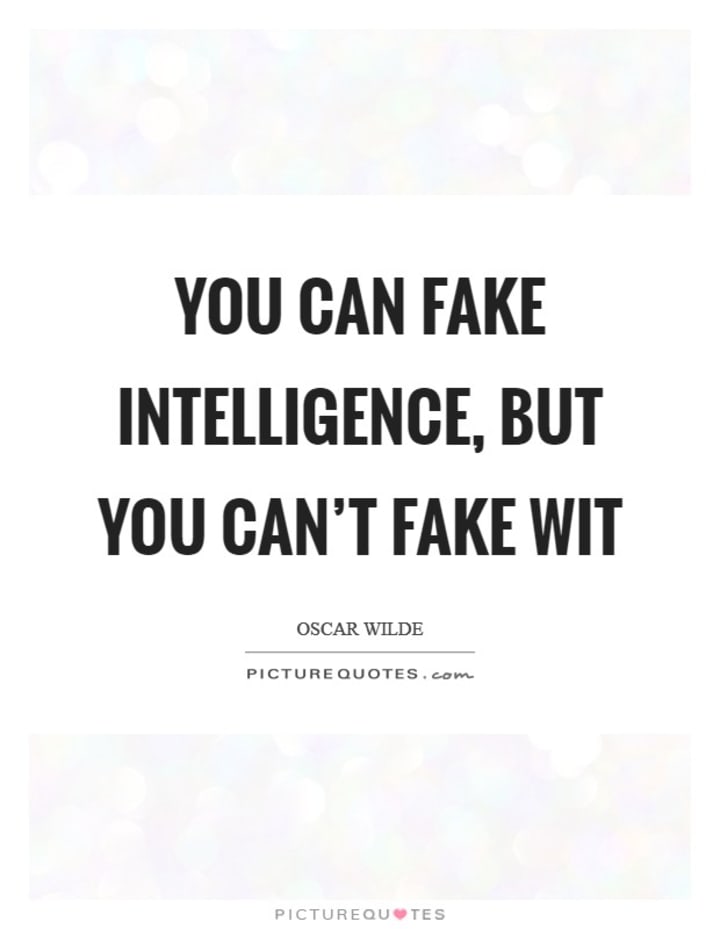
Atkinson's use of wit throughout the novel offers readers a break from the normal spy thriller and the constant fear of war that is following Juliet from year to year of the novel. So even though a spy thriller may not seem your speed, how about some comedic relief.
"But wasn't artistic endeavor the final refuge of the uncommitted?" (21) Juliet dares to ask at one point, leading readers to wonder just how much of a refuge writing is for Atkinson herself.
"Do you like Beethoven, sir?" she asked.
"Not particularly," he said, seemingly puzzled by the question. "He makes for a good paperweight though." (30) Juliet's boss said as the two are discussing their office setup and the large Beethoven bust sitting on the desk.
Romance at Large
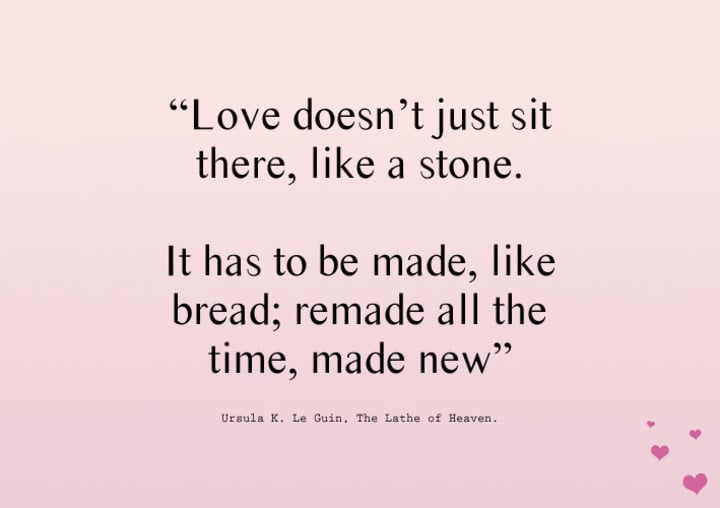
Even after a few laughs, readers will still be rooting for Juliet's strangely romantic fantasies for her numerous male costars. What good is a war novel without a little romance after all? There needs to be something to entertain the population of people who don't just want to read a historic spy novel.
At one point Juliet thinks of her boss, "but as time had gone by she'd realized that being ordinary was his secret. It was the best disguise of all really, wasn't it?" (22) Who wants to read of handsome, unattainable, and completely unreal men in romance novels, when they could read of a romance between a completely ordinary man and woman? (*cough cough sarcasm*) However, even though Juliet and the men around her are spies, readers still wonder how Juliet is going to seduce Perry or if there is something between her and Godfrey. Who will Juliet choose?
Humanity at its Finest
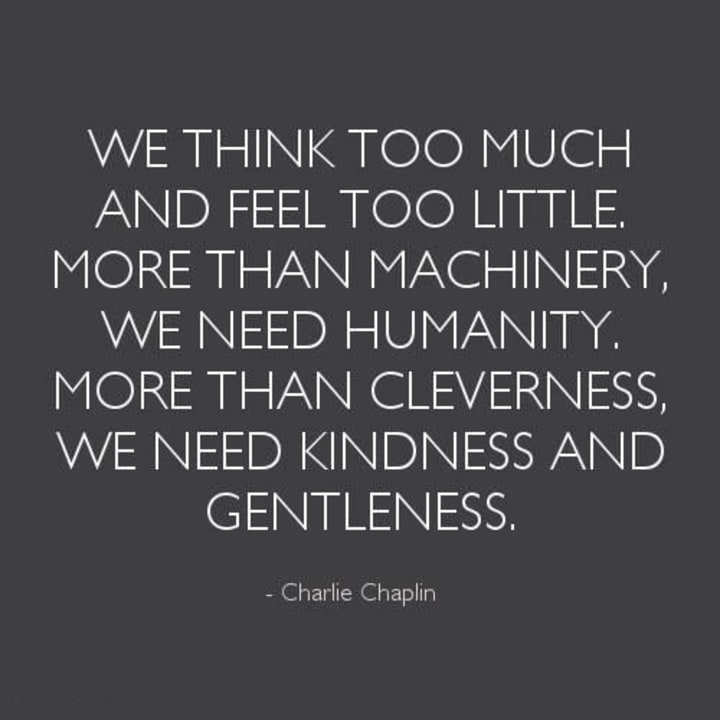
Atkinson also uses her keen eye to show humanity's true colors throughout the novel. No one is black and white as the world around Juliet prepares for war. Readers see Juliet (and Atkinson's) bleak and morbid outlook on the world and humanity through the actions of other characters because Juliet is the naive, young girl who needs to learn these harsh realities of the world.
"The blame generally has to fall somewhere, Miss Armstrong. Women and the Jews tend to be first in line, unfortunately," (51) she is told when Juliet questions the ways of the world. While the Jews part is for the authenticity of the World War II era, the reality of the world is that there are still minorities who are being mistreated and underrepresented because they are the easy targets.
"You are young," he said, smiling wanly at her. "You will not feel it as much. As you grow older—I am fifty—you begin to despair of the wicked foolishness of the world. It is a bottomless pit, I fear," (63) Juliet is told by another spy. As we grow older, it is hoped that we learn from the world around us and because of that, we begin to see the world in its truly bleak colors.
"There were bentwood chairs and a scattering of quite ordinary people sitting on them, none of whom looked like Fascist sympathizers, but then how could you tell what anyone was in their heart? Really?" (81) Juliet wonders upon entering her first mission as a spy. She is unsure who is a friend and who is a foe because to her, everyone looks the same. Isn't that still true today?
Literary Callbacks
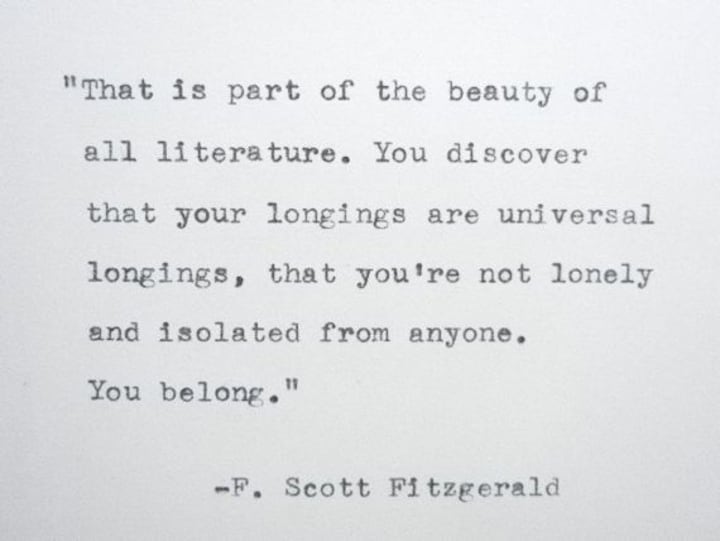
There are multiple literary references in Atkinson's repertoire and she pulls them out in ways that everyone can understand whether they've read the original material or not.
"Juliet?" the man said contemplatively. "As in Romeo and Juliet? Very romantic." He laughed as if this was some kind of private joke.
"I believe it was actually a tragedy, sir."
"Is there a difference?" (32)
"The brooding landscape they were currently traversing, the lowering sky above their heads and the rugged terrain beneath their feet, were all conspiring to make her feel like an unfortunate Bronte sister, traipsing endlessly across the moors after unobtainable fulfillment. Perry himself was not entirely without Heathcliffian qualities—the absence of levity, the ruthless disregard for a girl's comfort, the way he had of scrutinizing you as if you were a puzzle to be solved." (70)
"It's like being Jekyll and Hyde in some ways," Juliet said.
"Good and evil, dark and light," Perry mused. "You can't have one without the other, I suppose." (117)
"Don't you know?" Hartley said. "His wife went loopy and hanged herself in the wardrobe." More Rochester than Heathcliff then. "That was his first wife, of course," Hartley continued cheerfully. (His first wife?) "Nobody knows what happened to the second one." (118)
Don't Just Take My Word for It...
If these quotes of romance, wit, humanism, and literature haven't convinced you to pick up your copy of Transcription, then maybe these ones will help.
"Kate Atkinson is a marvel." - Gillian Flynn, author of the #1 New York Times bestseller GONE GIRL
"Ingenious in construction, indefatigably entertaining." - Hilary Mantel, author of Wolf Hall and Bring Up the Bodies
"Funny and quirky and sharp and sad - calamity laced with humor - and full of quietly heroic characters who offer knowing Lorrie Moore-esque parenthetical asides...Atkinson's true genius is structure." - Sarah Lyall, New York Times
Kate Atkinson's novel Transcription will bring readers so many new and varying emotions that they'll want to read it again and again.
About the Creator
Kristen Barenthaler
Curious adventurer. Crazed reader. Archery fanatic. Amateur author. Librarian.
Instagram: @kristenbarenthaler
Facebook: @kbarenthaler
GoodReads: https://www.goodreads.com/author/show/15101108.Kristen_Barenthaler


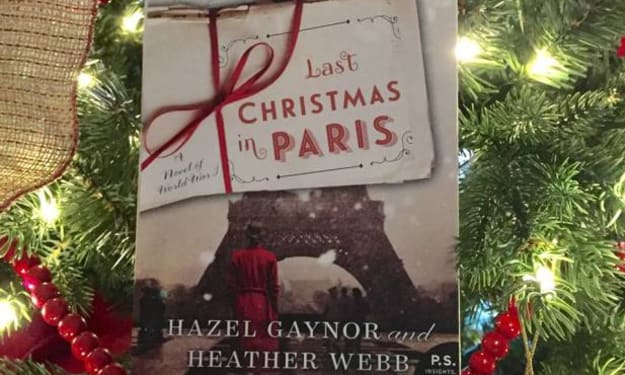



Comments
There are no comments for this story
Be the first to respond and start the conversation.